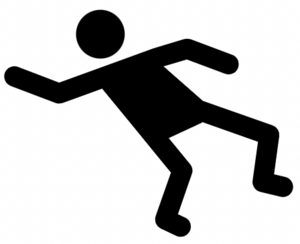The 9-Minute Rule for Dementia Fall Risk
The 9-Minute Rule for Dementia Fall Risk
Blog Article
The 9-Minute Rule for Dementia Fall Risk
Table of ContentsAbout Dementia Fall RiskRumored Buzz on Dementia Fall Risk9 Simple Techniques For Dementia Fall RiskThe Best Strategy To Use For Dementia Fall RiskDementia Fall Risk Can Be Fun For Everyone
In the community, poor road lighting or vulnerable creeks and landfills may also trigger mishaps. Autumns Risk Evaluation Tool (FRAT) is a 4-item falls-risk testing device for sub-acute and domestic treatment. The FRAT has 3 sections: fall threat status, threat element checklist, and action strategy. A Loss Threat Condition consists of information about background of current drops, drugs, mental and cognitive status of the individual.If the individual scores on a threat element, the corresponding number of points are counted to the individual's fall threat score in the box to the far. If a client's loss danger rating completes 5 or higher, the person goes to high threat for falls. If the client ratings just 4 points or reduced, they are still at some threat of dropping, and the registered nurse needs to use their ideal clinical analysis to take care of all autumn threat elements as part of a holistic treatment plan.
These basic techniques, in general, assist establish a safe atmosphere that lowers unintended drops and defines core preventative procedures for all clients. Signs are vital for individuals at threat for drops.
Excitement About Dementia Fall Risk
Wristbands need to consist of the client's last and very first name, date of birth, and NHS number in the UK. Only red shade should be made use of to signify special patient condition.
Items that are too far may require the individual to get to out or ambulate unnecessarily and can possibly be a threat or contribute to falls. Aids stop the person from heading out of bed without any kind of assistance. Registered nurses reply to fallers' phone call lights faster than they do to lights started by non-fallers.
Visual disability can significantly trigger falls. Hip pads, when worn appropriately, may lower a hip crack when fall occurs. Maintaining the beds closer to the flooring decreases the danger of falls and severe injury. Putting the cushion on the flooring dramatically lowers fall threat in some medical care settings. Low beds are made to lessen the distance a person drops after moving out of bed.
5 Simple Techniques For Dementia Fall Risk
Individuals who are high and with weak leg muscles that attempt to remain on the bed from a standing setting are likely to drop onto the bed since it's too low for them to like this reduce themselves safely. Additionally, if a high person efforts to rise from a low bed without support, the person is likely to drop back down onto the bed or miss out on the bed and drop onto the floor.
They're made to promote prompt rescue, not to prevent drops from bed. Apart from bed alarm systems, boosted guidance for risky patients likewise may help avoid falls.

People with a shuffling stride increase loss chances dramatically. To lower loss threat, shoes ought to be with a little to no heel, slim soles with slip-resistant step, and sustain the ankle joints. Encourage person to make use of nonskid socks their explanation to protect against the feet from moving upon standing. Motivate people to put on suitable, well-fitting shoesnot nonskid socks for ambulation.
Things about Dementia Fall Risk
In a study, homes with appropriate illumination report fewer falls (Ramulu et al., 2021). Renovation in illumination at home may lower loss prices in older adults.

Caretakers work for ensuring a safe, safeguarded, and secure atmosphere. Studies showed really low-certainty evidence that sitters minimize loss risk in acute treatment healthcare facilities and only moderate-certainty that choices like video clip surveillance can reduce sitter use without raising loss threat, recommending that sitters are not as helpful as at first thought (Greely et al., 2020).
The Buzz on Dementia Fall Risk

Increased physical conditioning lowers the danger for falls and limits injury that is received when fall transpires. Land and water-based exercise programs may be similarly valuable on balance and gait and thus decrease the risk for falls. Water workout might add a favorable benefit on equilibrium and stride for females 65 years and older.
Chair Increase Workout is a basic sit-to-stand exercise that aids strengthen the muscles in the upper legs and buttocks and improves movement and freedom. The goal is to do Chair Increase workouts without making use of hands as the client ends up being stronger. See sources section for a detailed instruction on exactly how to execute Chair Increase exercise.
Report this page